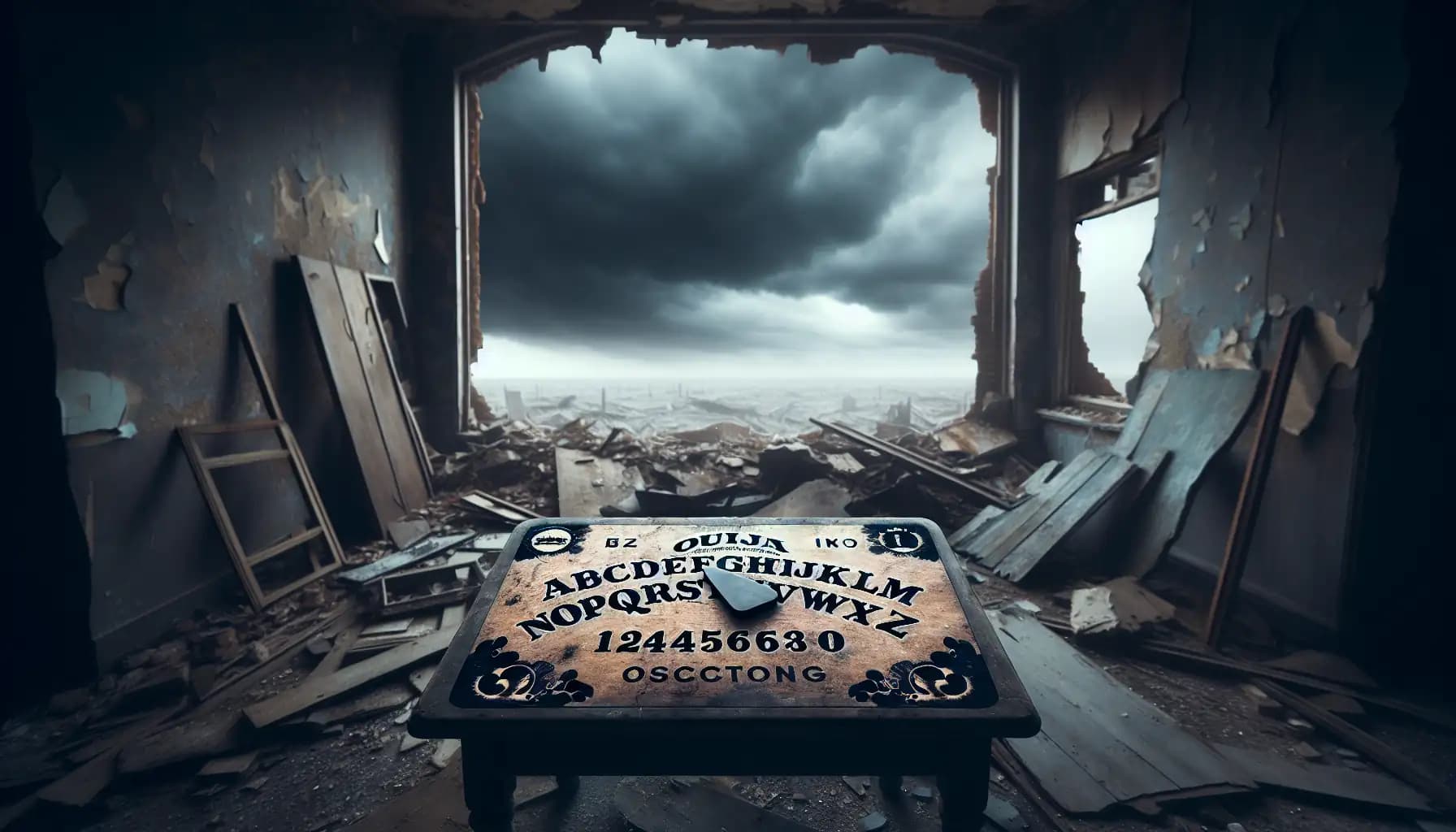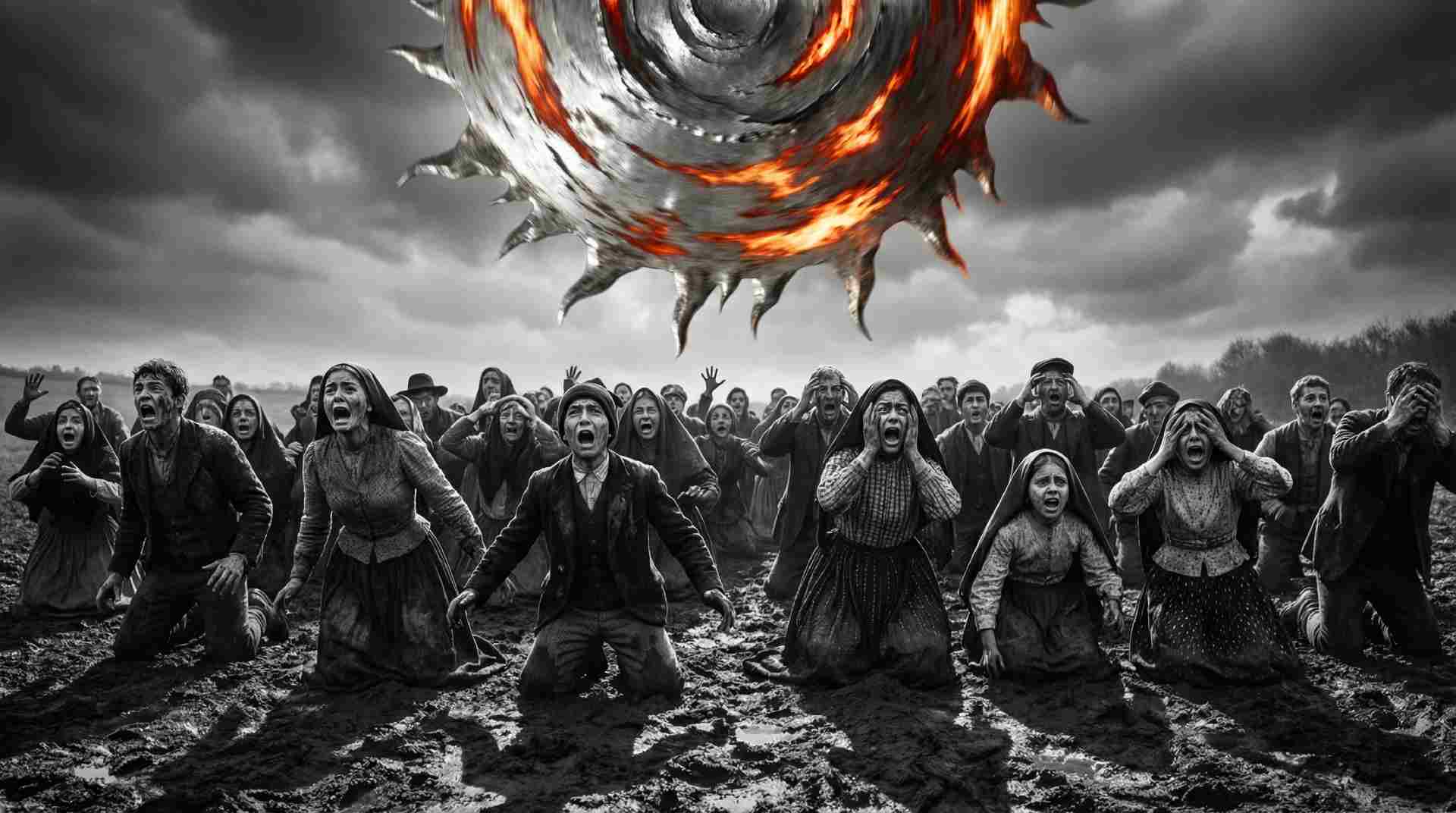The Enigmatic History of the Ouija Board
The Ouija board has long been a subject of intrigue and speculation, often seen as a bridge between the living and the supernatural. Its origins are closely tied to the spiritualist movement of the mid-19th century, which aimed to contact the spirits of the deceased.
In 1848, the Fox sisters from Hydesville, New York, claimed to communicate with spirits through mysterious rapping sounds. This phenomenon ignited public interest and led to a surge in spiritualism, culminating in the creation of the Ouija board as we know it today.
Origins and Inventions
The term Ouija is said to have emerged during a séance in 1890 when a spirit supposedly suggested the name, claiming it meant “good luck”. However, there is no evidence of the word existing in any ancient language. The board itself was patented by three Baltimore businessmen who envisioned it as a popular parlor game.
In Unexplained History, we explore how the Ouija board evolved from a simple tool for the spiritualists to a commercial product marketed for recreation. It gained immense popularity particularly after World War I, with individuals seeking to connect with lost loved ones.
How Does the Ouija Board Work?
The Ouija board operates based on the ideomotor effect, wherein participants subconsciously move the planchette without realizing it. This involuntary action gives the illusion that the device is communicating with spirits. Various psychological studies confirm that this phenomenon can trick participants into thinking their subconscious is revealing hidden truths.
In a study conducted by researchers at the University of British Columbia, participants using a Ouija board exhibited improved accuracy in answering trivia questions. This suggests that the board may unlock cognitive pathways that are otherwise inaccessible, tapping into knowledge stored within the subconscious.
Cultural Impact and Controversy
Despite its popularity, the Ouija board is often viewed with fear and skepticism. Many religious organizations consider it a tool of the occult, referencing biblical texts that warn against divination. Critics argue that the potential for psychological disturbance and even possession is a real concern, with cases of misuse leading to alarming consequences.
For example, one infamous case in 1949 involved a young boy allegedly becoming possessed after using a Ouija board, prompting a highly publicized exorcism that later inspired the novel and film The Exorcist. Such incidents feed into the mystique of the paranormal that surrounds the board.
The Modern Ouija Board
Today, the Ouija board remains a popular item, often marketed as a fun party game. Various versions exist, including themed boards that appeal to younger audiences, even prompting critiques about the trivialization of spiritualism. In contrast, there are still dedicated groups who regard it as a serious tool for contacting the spirit world.
The board has also been the subject of numerous works of fiction and pop culture references. Its presence in films and books continues to shape public perception, blending entertainment with genuine fears surrounding the unknown. For more insights into supernatural phenomena, explore our article on Ghost Hunting.
Conclusion: A Tool of Fun or Fear?
Whether one views the Ouija board as a harmless game or a dangerous tool of the occult, it undeniably plays a significant role in our cultural landscape. It fosters discussions about belief, fear, and the mysteries of the unknown.
As we ponder the implications of using the Ouija board, we encourage readers to delve deeper into the mysteries of the unexplained or consider its fascinating psychology shared here today.





